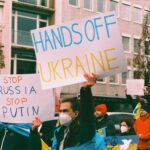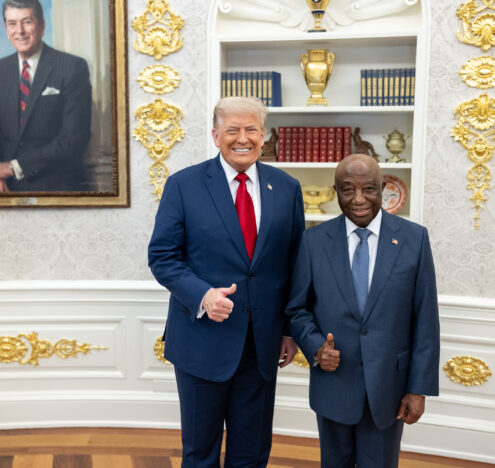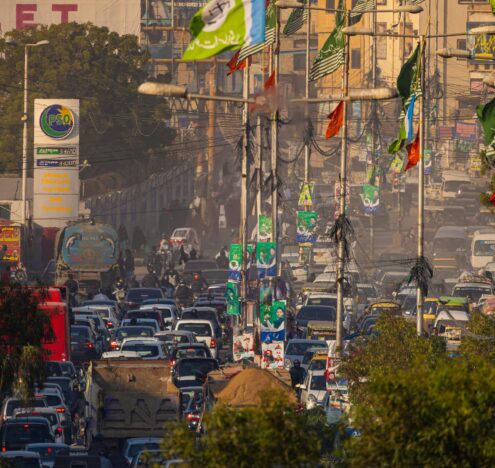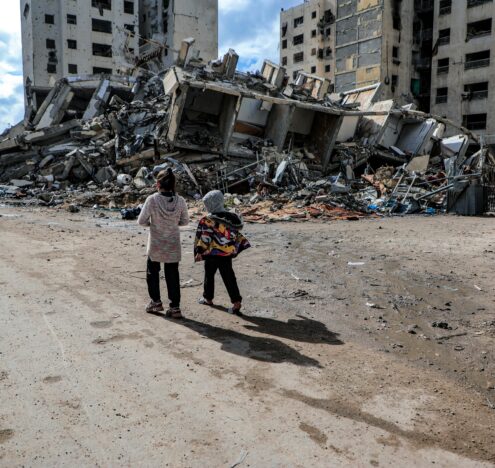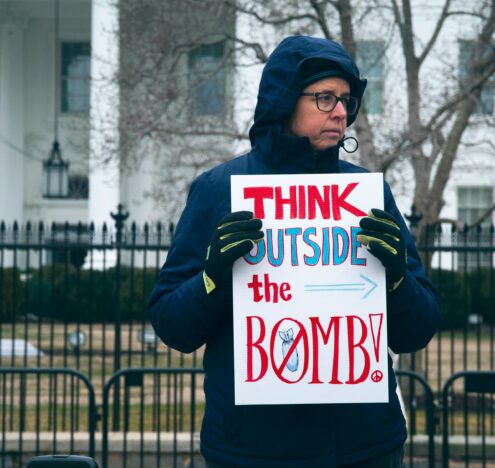In June, Spain’s Supreme Court overturned a lower court’s more lenient verdict in a high-profile rape case and sentenced the five perpetrators to 15 years in prison. The men, who gang-raped a young woman attending Pamplona’s San Fermín festival, were initially convicted on the lesser charge of sexual abuse, on the grounds that the victim had not demonstrated resistance sufficient to meet the legal definition of rape.
The lower court’s handling of the case highlighted gaps in the Spanish legal system’s approach to sexual assault, galvanizing massive protests and online activism in the form of hashtags like #Cuéntalo (“Tell your story”) and #YoSiTeCreo (“I believe you”). Outrage over the lack of consent-based legislation prompted a review of Spain’s criminal code, and officials have pledged to amend its flawed provisions.
Spain’s reckoning with sexual assault represents a healthy exercise of core democratic values — freedoms of assembly and speech, an engaged civil society, political accountability, the rule of law, and gender equality. But similar efforts to improve conditions for women in countries that lack the basic tools of democracy have not yielded such positive results.
A WORLDWIDE CAMPAIGN CONFRONTS LOCAL OBSTACLES
Spain is one of many countries that have experienced seismic shifts in how their legal systems and societies approach issues of gender equality and sexual violence in recent years. First coined by African American feminist Tarana Burke, the now-ubiquitous hashtag #MeToo has quickly become a global phenomenon, fueling protests, legislative change, and civil society engagement in diverse settings. Since its online proliferation in 2017, the #MeToo movement has gained momentum in places including South Korea, Argentina, the United States, and India, with protests and online activism generating public discussion on inadequate legal systems and pervasive cultures of victim-blaming.
However, while all societies suffer from gender-based violence and inequality to some extent, the tools that allow #MeToo activists to successfully achieve lasting changes are far more accessible in democracies than in authoritarian states.
While all societies suffer from gender-based violence and inequality to some extent, the tools that allow #MeToo activists to successfully achieve lasting changes are far more accessible in democracies than in authoritarian states.
Democratic institutions facilitate public campaigns of dissent and protest, including independent online mobilization. They ensure that freely elected officials are responsive to public demands, or subject to replacement if they fail to respond. And they help guarantee that constitutional rights and reformed laws will be properly enforced through a court system that treats victims with dignity and offers them ample opportunity to pursue justice.
In nondemocratic countries, the lack of such institutions stunts the public’s ability to address problematic laws and practices. For example, women in Russia who have braved the public sphere with their stories of abuse have been met with death threats and mockery. Moreover, there was little opportunity for women’s rights advocates to object in 2017, when Russian lawmakers decriminalized some forms of domestic violence. Claiming that “domestic violence” is a Western, radical feminist concept, the Russian Orthodox Church — which works closely with the regime of President Vladimir Putin — backed the legislation in the name of protecting traditional family values. Reporting of domestic violence has declined, and outspoken women’s rights activists have faced charges such as inciting hatred of men.
Similarly, in Saudi Arabia, activists who called for greater freedom of movement and legal autonomy for women have been arrested and allegedly subjected to torture and sexual assault in pretrial detention. As they began to face trial this year, their relatives and supporters were arrested as well. The repressive legal framework to which the activists objected includes the “guardianship” system, under which women must obtain the consent of a male guardian (usually their father, brother, or husband) before engaging in many activities. Political scientist Elham Manea writes that legal redress is nearly impossible for survivors of sexual and domestic abuse because “the police often insist that women and girls obtain their guardian’s authorization to file a criminal complaint, even when this complaint is against the guardian.”
Even in the mostly undemocratic Middle East and North Africa region, however, progress is more likely where the tools of democracy are more accessible. In 2017, after women-led pressure campaigns to repeal antiquated laws that allowed men to avoid prosecution for rape if they married their victims, three of the least repressive Arab states — Tunisia, Lebanon, and Jordan — repealed these so-called “marry your rapist” provisions.
A DIGITAL MOVEMENT REQUIRES INTERNET FREEDOM
The digital nature of the global #MeToo movement has been credited with enabling its rapid growth. Women have used social media platforms to organize mass protests against unequal treatment and share stories illustrating the ways in which legal systems have failed to hold perpetrators accountable. For these very reasons, crackdowns on internet freedom in authoritarian states have helped to squelch public pressure for justice and reform.
As part of a broader clampdown on dissent in Egypt, women have faced intimidation campaigns and been jailed for filing sexual harassment charges or detailing their experiences online. A Lebanese tourist was arrested at the Cairo airport in 2018 and sentenced to eight years in prison — later reduced to a large fine — after sharing her story of harassment on social media. Also that year, a human rights activist received a suspended two-year prison sentence and a fine for spreading “false news” after she posted a Facebook video about her experience with sexual harassment and the Egyptian government’s failure to protect women.
The situation for #MeToo campaigners in China is even more bleak. State censors regularly delete posts on the social media platform Sina Weibo that contain references to Chinese iterations of #MeToo, and harsh repression of organized dissent has led to the disappearance of some outspoken activists. Weibo and the popular messaging service WeChat recently announced the permanent suspension of certain feminist accounts.
ALL HUMAN RIGHTS ARE INTERDEPENDENT
The experiences of women’s rights activists in Spain on the one hand and Saudi Arabia or China on the other show that the freedoms associated with democracy are mutually dependent. Elements including civic participation, free expression, and the promise of equal treatment under the law lie at the core of democracy. When one or more of these is denied, the others are inevitably impaired.
At the same time, whatever freedoms are available can be leveraged to make progress on the rest. The means by which #MeToo activists have catalyzed change are undeniably democratic. Freedoms of expression and assembly have allowed women to take to the streets and to social media in order to advance the causes of justice and gender equality.
If women’s rights defenders in more difficult environments are able to persist in their efforts, they could carve out greater civic space and create opportunities for the expansion of rights on other issues. In this sense, the global #MeToo movement is not only advocating for victims of sexual harassment and assault — it is an example of how democratic values can be mobilized to improve conditions for entire societies.
Grace Vedock is a senior at Middlebury College, where she is pursuing a major in Political Science and a minor in Gender, Sexuality, and Feminist Studies. This summer, she interned at Freedom House on their research and analysis team.












